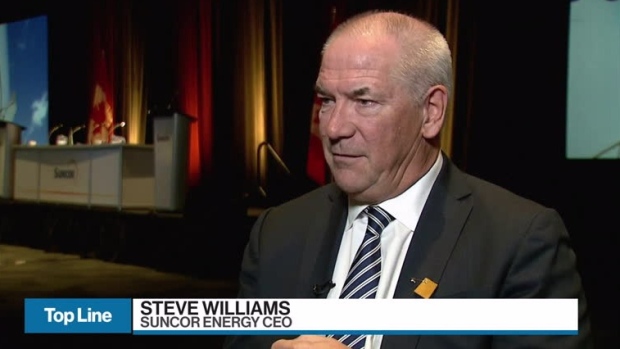May 2, 2018
Suncor's CEO warns regulatory uncertainty scaring investors away from Canada

Canada’s energy sector is no longer a good place to invest and many big energy players have turned their back on the oil sands, Suncor CEO Steve Williams told BNN Bloomberg in an exclusive interview Wednesday.
“I think we’re running out of [companies to leave], in a sense,” Willams said. “The big guys have already exercised some of their options.”
Speaking to BNN Bloomberg on the heels of quarterly earnings and an announcement that the company is moving forward with ramp-ups on both the Fort Hills and Hebron projects, Williams said Canada is not doing itself any favours in attracting new investment.
“Canada is not doing very well, competitively, at the moment,” Williams said. “So, if you look at the sum of taxation plus royalty, then add into that the regulatory uncertainty… generally around the world there’s been an ‘Off Canada’ signal.”
Williams included his own company in that conversation, as well.
“We have major assets here, so we’ll be spending our sustaining capital, but if I look on a competitive basis right now, no. Canada comes towards the bottom of that pack, not towards the top of it,” Williams said.
“There’s been an exodus from Canada. Ourselves and a few others have been consolidators of that. So we keep a watching brief, but we’re not chasing anything.”
Williams did express some hope, however, that the federal government is taking the appropriate stance when it comes to resolving the impasse between Alberta and B.C. over the Trans Mountain expansion.
“He’s been unambiguous,” Williams said of Prime Minister Justin Trudeau, who spent a day at the Fort Hills site in early April. “He’s said that the federal government is supporting TMX and it will get built. That was the important first step.”
“Now, they’re involved in what it takes to make that happen. So, I’m eagerly awaiting, like everybody else, I think, the next few weeks as that plan rolls out.”




